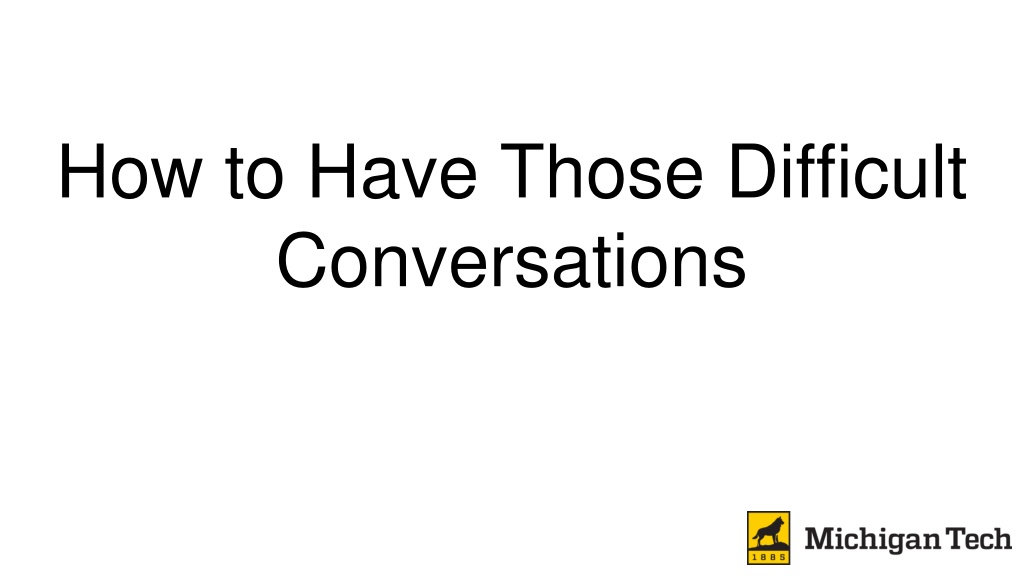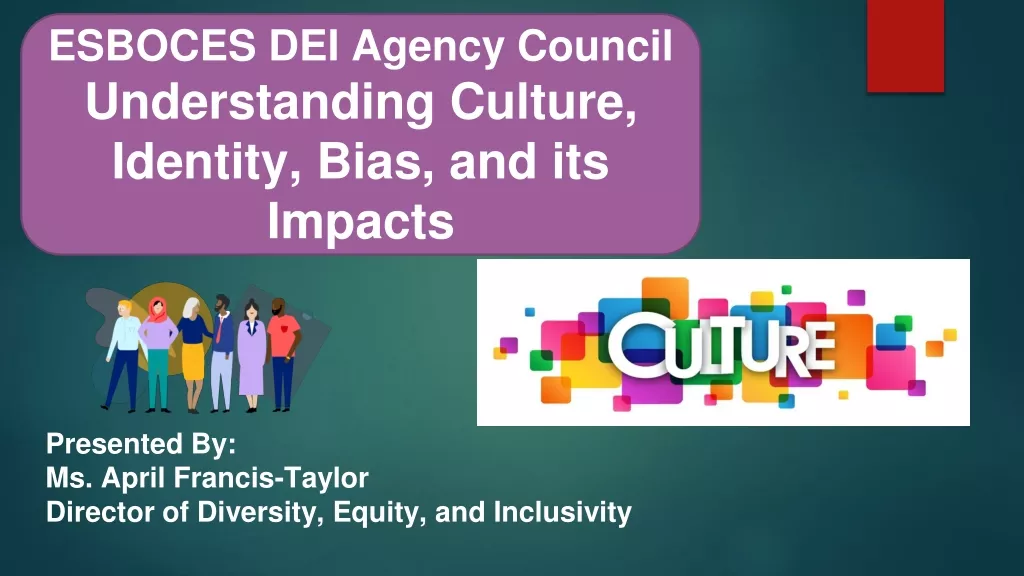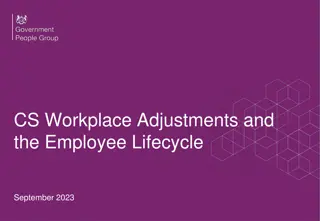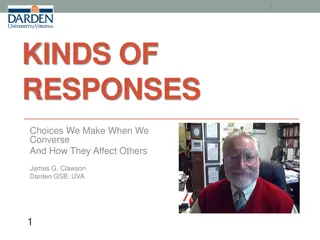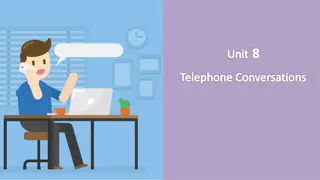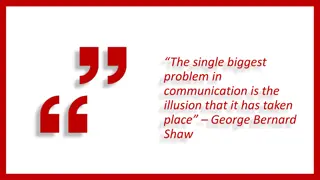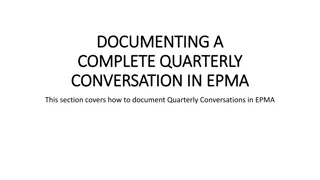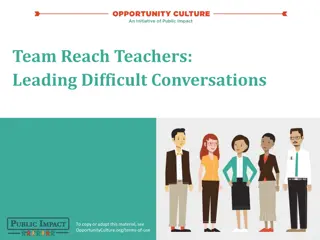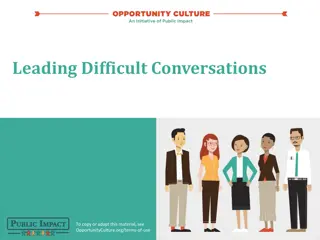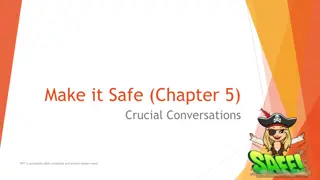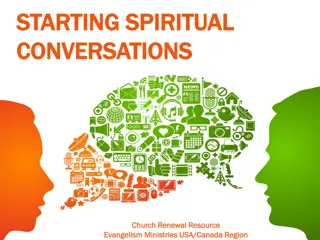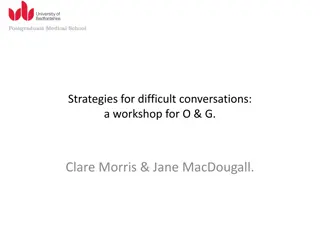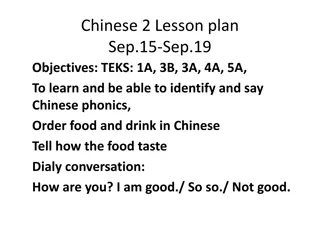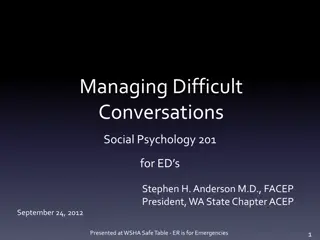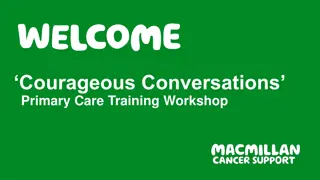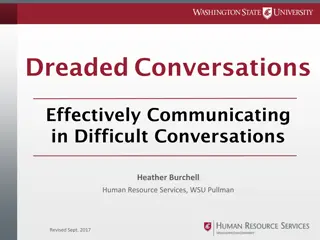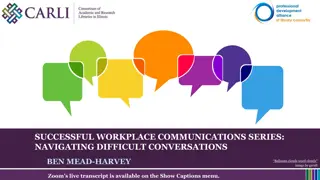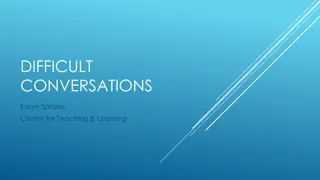Mastering Difficult Conversations in the Workplace
Learn how to handle challenging discussions effectively with this guide. Discover why conversations become difficult, strategies for preparation, emotional management, and post-conversation steps. Explore scenarios, insights on what makes conversations tough, and the impact of avoidance. Don't let crucial dialogues go unaddressed - enhance your communication skills now!
- Difficult Conversations
- Workplace Communication
- Conflict Resolution
- Professional Development
- Emotional Intelligence
Download Presentation

Please find below an Image/Link to download the presentation.
The content on the website is provided AS IS for your information and personal use only. It may not be sold, licensed, or shared on other websites without obtaining consent from the author. Download presentation by click this link. If you encounter any issues during the download, it is possible that the publisher has removed the file from their server.
E N D
Presentation Transcript
How to Have Those Difficult Conversations
How NOT to have a Difficult Conversation The story, all names, characters, and incidents portrayed in this production are fictitious. No identification with actual persons (living or deceased), places, buildings, and products is intended or should be inferred.
Instructional Objectives: 1. Supervisor will be able to successfully conduct difficult conversations. 2. Supervisor will be able to deliver professional discipline in order to help employee(s) improve.
Agenda How to Have Difficult Conversations What makes a conversation difficult and why we avoid them Understand how and when to have those difficult conversations Next Steps and Resources 4
Small Group Activity Gather in groups of 2 or 3 people. Recall a recent difficult conversation you had and answer the following questions: What was the issue that precipitated the conversation? How much time did you spend preparing for the conversation before having it? What were the emotions you were feeling? How clearly were you or the other person thinking during the heated portions? Was there any relational damage control that had to be done afterwards? Did the issue addressed get blown out of proportion at all?
What Makes a Conversation Difficult? Subject of the conversation (performance issues, behavior) Relationship with the other person (supervisor/employee, peers) Emotions Entering into conversation with certain expectations Filtering out the message
What might the consequences be if we dont have the conversation? What might the outcome be if we do have the conversation? 7
Avoiding these Conversations can be Costly.. The earlier you catch a misunderstanding, ask a question to clarify intentions, or suggest a facilitated conversation (if other avenues haven t worked) the sooner you clear it up and move on. Invest your time now and save hours and even months of time later.
Considerations during a Difficult Conversation Cultural dynamics Acknowledge that everyone has had different experiences Robust debate/dialogue is a good thing. We can agree to disagree in a respectful manner Prepare Keep goals realistic Reduce (not eliminate) fear and anxiety 9
Considerations during a Difficult Conversation Where and when the conversation will take place Make sure all parties have an opportunity to speak 10
Considerations during a Difficult Conversation Should I get a facilitator? When to let go and move on? Is there a power dynamic at play? What is current relationship like? Should I involve HR? Institutional Equity/Title IX? advisor?
Steps to Tackle a Difficult Conversation Listen (actively) to them Be Clear on how you feel and what you want Consider their perspective on the issue Paraphrase what the other person has said
Steps to Tackle a Difficult Conversation Remain Calm If it isn t going to plan, take a Break Agree to Disagree Look after Yourself
Steps to Tackle a Difficult Conversation Focus on the Immediate Issue to resolve Be Empathetic Acknowledging is not agreeing It sounds like you re really upset about this or This seems really important to you
Avoid These Common Mistakes 1. Don t assume your perspective is obvious. Steer clear of phrases like clearly, obviously, or without a doubt, which are likely to insult your counterpart. 2. Don t exaggerate. Skip statements that start with You always or you never . They re rarely true. 3. Don t challenge someone s character or integrity. You ll just make the person defensive if you tell them they re unprofessional, wrong or unethical.
More Common Mistakes 4. Don t tell others what they should do. People feel judged by should statements. Try saying, You might consider . One possibility is . or Have you thought of . instead 5. Don t say, It s not personal. Recognize that even when it s not personal to you, it might be for the other person. Adapted from Words and Phrases to Avoid in a Difficult Conversation, by James R. Detert found in Harvard Business Review Management Tip of the Day. (June 28, 2021).
Next steps if conversation wasnt productive Facilitation Learn the other s story Express views and feelings Problem solve together Mediation Reach a voluntary resolution to repair harm caused 19
What can a facilitator do? Facilitators can Provide an impartial third-party listener Ease the tension between the parties Ensure that all voices are heard Facilitators do not Provide a solution to the issue Undo years of frustration
Disciplinary Conversations and Best Practices Supervisor Success Series Catherine Burns, Human Resources
Instructional Objectives 1. Supervisor will be able to clearly communicate issues/concerns, expectations, and consequences to employees. 1. Supervisor will be able to utilize best practices regarding discipline.
Progressive Discipline What is Progressive Discipline? Why Progressive? Progressive Approach What does this look like?
Documentation Importance of Documentation o Burden of Proof o Risk Management
Disciplinary Process 1. Supervisor contacts Employment Rep/Director of HR 1. They discuss steps in discipline considering: a. Severity b. Frequency c. Previous discussions or incidents with employee 3. Together they develop a plan for discipline a. Informal vs formal b. Talking points for conversation c. Issues, Expectations and Consequences ( ICE ) 4. Supervisor delivers message to employee a. Document meeting and talking points b. Send any talking points, letters or documents of meeting to Human Resources
Activity Break into groups of 3-4 people Hand out different disciplinary scenarios As a group, discuss how you as a supervisor would handle the disciplinary scenario based on what you learned Report out
Remember: Remember: Contact your Employment Services Representative for guidance No two disciplinary situations are the same
Confidential Resources Ombuds - Susanna Peters speters@mtu.edu www.mtu.edu/ombuds 906-487-2391 Dial Help - 609 Sheldon Ave. Houghton www.dialhelp.org 906-482-4357 Text: 906-356-3337 Employee Assistance Program https://blogs.mtu.edu/hr/category/benefits/
Additional Resources Title IX titleix@mtu.edu https://www.mtu.edu/title-ix/ Institutional Equity equity@mtu.edu https://www.mtu.edu/equity/ Human Resources https://www.mtu.edu/hr/ Conflict Resolution Network conflict@mtu.edu https://www.mtu.edu/conduct/conflict-resolution/
